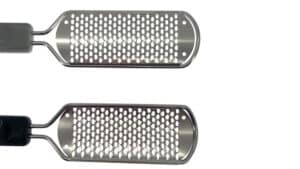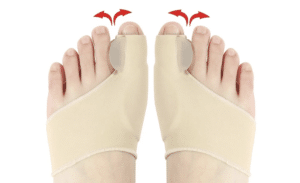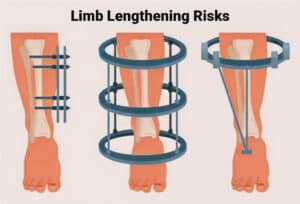
- January 3, 2023
- 4:10 pm
Tummy Tuck
Table of Contents
What is a Tummy Tuck and how does it work?
A tummy tuck, also known as abdominoplasty, is a surgical procedure that is used to remove excess skin and fat from the abdomen, and to tighten the muscles in the abdominal wall. The surgery is typically performed under general anesthesia, and typically takes several hours to complete.
During the surgery, the surgeon will make a long incision across the lower abdomen, just above the pubic area. The incision is typically made low enough that it can be hidden by most types of underwear or swimwear. The surgeon will then separate the skin from the underlying abdominal muscles, and use sutures or other surgical techniques to tighten the muscles.
Once the muscles have been tightened, the surgeon will remove any excess skin and fat from the abdomen, and will re-drape the remaining skin over the newly-toned muscles. The incision will then be closed with stitches or surgical staples, and a drainage tube may be inserted to help remove any excess fluid from the surgical site.
After the surgery, the patient will need to wear a compression garment to help support the newly-toned muscles and to reduce swelling. The recovery period can vary, but most patients can return to work and other normal activities within a few weeks. However, it may take several months for the final results of the surgery to be visible.
Who is a good candidate for tummy tuck surgery?
A tummy tuck is a major surgical procedure, and it is not right for everyone. In general, good candidates for tummy tuck surgery are individuals who are in good overall health, and who have realistic expectations about the results of the surgery.
In order to be a good candidate for a tummy tuck, you should have excess skin and fat in the abdominal area that is not responsive to diet and exercise. You should also have relatively good muscle tone in the abdominal wall, as the surgery is primarily intended to remove excess skin and fat, and not to provide significant muscle definition.
In addition, you should be at or near your ideal body weight before undergoing a tummy tuck. The surgery is not intended as a weight loss procedure, and if you are significantly overweight, you may not be a good candidate for the surgery.
If you are considering a tummy tuck, it is important to discuss your goals and expectations with a qualified plastic surgeon. The surgeon can help you determine if a tummy tuck is right for you, and can help you develop a personalized treatment plan to achieve your desired results.
What are the potential risks and complications of tummy tuck surgery?
Tummy tuck surgery is a safe and effective procedure when performed by a qualified plastic surgeon. However, as with any surgical procedure, there are potential risks and complications that you should be aware of.
Some of the potential risks and complications of tummy tuck surgery include:
- Infection: As with any surgical procedure, there is a risk of infection after a tummy tuck. This risk can be reduced by carefully following your surgeon’s instructions for wound care and by taking any prescribed antibiotics as directed.
- Bleeding: Bleeding is a potential complication of any surgery, and a tummy tuck is no exception. If you experience excessive bleeding after your surgery, you should contact your surgeon immediately.
- Blood clots: Blood clots can form in the legs after surgery, and can be dangerous if they travel to the lungs. To help prevent blood clots, your surgeon may prescribe blood thinners or other medications, and will encourage you to move around and walk as soon as possible after your surgery.
- Numbness: It is common for the skin of the abdomen to feel numb after a tummy tuck, and this numbness may persist for several months. In some cases, the numbness may be permanent.
- Scarring: A tummy tuck involves making a long incision in the lower abdomen, and this can result in scarring. The scar may be visible, especially if you wear low-rise clothing, and it may be raised or discolored initially. Over time, the scar will typically fade and become less noticeable.
Overall, the risks and complications of tummy tuck surgery are rare, and most patients are able to achieve their desired results without any significant complications. However, it is important to carefully discuss the potential risks and complications with your surgeon before undergoing the procedure, so that you can make an informed decision.
Are the results of tummy tuck surgery permanent?
The results of tummy tuck surgery are generally considered to be long-lasting, but they are not permanent. The surgery can remove excess skin and fat, and can tighten the muscles in the abdominal wall, resulting in a flatter and more toned abdomen. However, these results are not permanent, and can be affected by a number of factors, such as the natural aging process and changes in weight.
To maintain the results of your tummy tuck surgery, it is important to follow a healthy lifestyle, including eating a balanced diet and getting regular exercise. This can help to prevent significant weight gain, which can cause the skin and muscles of the abdomen to stretch and become lax again.
In addition, it is important to avoid exposing your abdomen to extreme temperatures, such as hot tubs or saunas, as this can cause the skin to become loose and saggy. It is also important to avoid activities that can strain the abdominal muscles, such as heavy lifting or intense exercise, until your surgeon gives you the okay to resume these activities.
Overall, the results of tummy tuck surgery can be long-lasting, but to maintain the best possible results, it is important to follow a healthy lifestyle and to avoid activities that can cause the skin and muscles of the abdomen to stretch or become lax.
How can I find a qualified plastic surgeon to perform my tummy tuck surgery?
When considering a tummy tuck, it is important to choose a qualified plastic surgeon who has experience performing the procedure. The best way to find a qualified plastic surgeon is to ask for recommendations from your primary care doctor or from friends and family who have undergone plastic surgery.
You can also search for qualified plastic surgeons in your area by using the American Society of Plastic Surgeons’ Find a Surgeon tool. This tool allows you to search for plastic surgeons by location, and provides information about each surgeon’s training, experience, and areas of expertise.
When choosing a plastic surgeon, it is important to schedule a consultation with the surgeon to discuss your goals and expectations, and to learn more about the surgeon’s experience and approach to the procedure. During the consultation, you should ask the surgeon about their training, experience, and the number of tummy tuck surgeries they have performed. You should also ask to see before and after photos of the surgeon’s previous tummy tuck patients, to get an idea of the results you can expect.
Overall, it is important to choose a qualified and experienced plastic surgeon to perform your tummy tuck surgery, in order to achieve the best possible results.
Preparing for Tummy Tuck Surgery
There are several steps you can take to prepare for tummy tuck surgery:
- Meet with your surgeon to discuss the procedure and get pre-surgery instructions. Your surgeon will explain the details of the surgery, including the risks and potential complications, and will provide you with specific instructions on how to prepare, such as what medications to avoid and whether you need to stop smoking.
- Get any necessary medical tests or lab work done. Your surgeon may recommend certain tests, such as blood work or imaging studies, to ensure that you are healthy enough for surgery and to help plan the procedure.
- Arrange for someone to drive you home after the surgery. You will not be able to drive yourself home after the tummy tuck, as the anesthesia can affect your ability to operate a vehicle. Make sure you have someone who can take you home and stay with you for the first 24 hours after the surgery.
- Stop smoking and avoid certain medications. Smoking can increase the risk of complications during and after surgery, so it is important to quit at least two weeks before the procedure. Your surgeon may also recommend avoiding certain medications, such as anti-inflammatory drugs or blood thinners, that can interfere with the surgery or healing process.
- Eat a healthy diet and stay hydrated. A healthy diet can help your body heal and recover more quickly after surgery. Make sure to eat plenty of fruits, vegetables, and protein, and drink plenty of water to stay hydrated.
- Purchase any necessary supplies. Your surgeon may provide you with a list of supplies that you will need after the surgery, such as compression garments or pain medication. Make sure to purchase these items ahead of time so that you have everything you need when you come home from the hospital.
How long do tummy tucks last?
Tummy tuck surgery, also known as abdominoplasty, is a surgical procedure that tightens and removes excess skin and fat from the abdominal area. The results of a tummy tuck are typically long-lasting, but they can be affected by factors such as age, weight fluctuations, and lifestyle habits.
In general, the effects of a tummy tuck can last for several years. However, it is important to maintain a healthy diet and exercise regularly to help maintain your results. Over time, the skin and muscles in the abdominal area may naturally loosen or sag, but this can be minimized by maintaining a healthy lifestyle.
It is also important to note that a tummy tuck does not prevent future weight gain or pregnancy, which can affect the results of the surgery. If you are planning on having children in the future, you may want to postpone your tummy tuck until after you have completed your family.
Overall, the longevity of a tummy tuck can vary depending on individual factors and the quality of the surgery. To ensure the best possible results, it is important to choose a skilled and experienced surgeon, follow your pre- and post-surgery instructions carefully, and maintain a healthy lifestyle.
What are the dangers of a tummy tuck?
Like any surgical procedure, a tummy tuck carries certain risks and complications.
Some of the potential dangers of a tummy tuck include:
- Bleeding and infection: As with any surgery, there is a risk of bleeding and infection during or after a tummy tuck.
- Anesthesia complications: Anesthesia is used to keep you comfortable and pain-free during the surgery. However, there is a small risk of complications from the anesthesia, such as allergic reactions or breathing problems.
- Blood clots: Blood clots can form in the legs or other areas of the body after surgery. If a blood clot breaks loose, it can travel to the lungs and cause a potentially life-threatening condition called pulmonary embolism.
- Nerve damage: The abdominal area contains a number of nerves that can be damaged during a tummy tuck. This can cause numbness, tingling, or other sensory changes in the skin.
- Fluid accumulation: Fluid can accumulate under the skin after a tummy tuck, leading to swelling and discomfort. This can usually be treated with medications or drainage, but in rare cases it may require additional surgery.
- Poor wound healing: In some cases, the incisions made during a tummy tuck may not heal properly, resulting in scarring or other complications.
Overall, the dangers of a tummy tuck are rare, but they can be serious. To reduce your risk of complications, it is important to choose a skilled and experienced surgeon and follow all of your pre- and post-surgery instructions carefully. Be sure to discuss the potential risks and complications with your surgeon before the procedure, and report any concerns or problems to your doctor as soon as possible.
What does a tummy tuck include?
A tummy tuck, also known as abdominoplasty, is a surgical procedure that tightens and reshapes the abdominal area. The procedure typically includes the following steps:
- Anesthesia: Before the surgery, you will be given medication to keep you comfortable and pain-free. This can be administered intravenously or through inhaled gases, depending on your preference and the recommendations of your surgeon.
- Incisions: The surgeon will make one or more incisions in the abdominal area, depending on the extent of the procedure and the specific techniques used. The incisions may be made horizontally along the lower abdomen, vertically along the middle of the abdomen, or a combination of both.
- Tissue removal: The surgeon will then remove excess fat and skin from the abdominal area, using liposuction or other techniques. The underlying muscles may also be tightened and reshaped to create a smoother and more toned appearance.
- Closing the incisions: After the excess tissue has been removed, the surgeon will close the incisions with sutures, staples, or skin glue. The incisions may be covered with bandages or a compression garment to help reduce swelling and promote healing.
- Recovery: After the surgery, you will be taken to a recovery area to be monitored until the effects of the anesthesia have worn off. You will be given instructions on how to care for the incisions and manage any discomfort, and you will need to arrange for someone to drive you home.
Overall, a tummy tuck typically involves making incisions in the abdominal area, removing excess fat and skin, and closing the incisions to create a smoother and more toned appearance. The specific details of the procedure may vary depending on the individual patient and the surgeon’s preferences.
How serious of a surgery is a tummy tuck?
Like any surgical procedure, a tummy tuck can be a serious and potentially risky procedure.
While the risks of a tummy tuck are generally low, complications can occur, such as bleeding and infection, anesthesia complications, blood clots, nerve damage, fluid accumulation, or poor wound healing. In rare cases, these complications can be serious and may require additional surgery or other medical treatment.
It is important to choose a skilled and experienced surgeon and follow all of your pre- and post-surgery instructions carefully to reduce your risk of complications. Be sure to discuss the potential risks and complications with your surgeon before the procedure, and report any concerns or problems to your doctor as soon as possible.
Overall, a tummy tuck is a serious surgical procedure that should not be taken lightly. It is important to carefully weigh the potential risks and benefits, and to have a clear understanding of what the procedure involves and what to expect during the recovery process.
How painful is a tummy tuck?
Like any surgical procedure, a tummy tuck can be associated with some discomfort or pain.
The amount of pain you experience after a tummy tuck will depend on a number of factors, such as the extent of the surgery, your pain tolerance, and how well you respond to pain medication. In general, the pain from a tummy tuck is manageable and can be controlled with medication.
Most people report feeling some discomfort or pain for the first few days after the surgery. The pain may be concentrated in the abdominal area, but it can also radiate to the back or legs. The pain may be sharp or dull, and it may be worse when you move or cough.
To help manage the pain after a tummy tuck, your surgeon will likely prescribe pain medication. It is important to take the medication as directed and to let your doctor know if you are still experiencing pain or discomfort that is not adequately controlled.
Overall, the pain from a tummy tuck is usually manageable, but it can vary depending on individual factors. To help ensure a comfortable recovery, it is important to follow your surgeon’s instructions and to let your doctor know if you are experiencing any problems.
Who should not get a tummy tuck?
While a tummy tuck can be an effective way to improve the appearance of the abdomen, it is not suitable for everyone.
In general, people who are not good candidates for a tummy tuck may include those who:
- Are pregnant or planning to become pregnant: A tummy tuck can affect the muscles and tissues in the abdominal area, which can make it more difficult for the uterus to expand during pregnancy. If you are pregnant or planning to become pregnant, you should wait until after you have completed your family before having a tummy tuck.
- Have significant health problems: A tummy tuck is a major surgical procedure, and it may not be safe for people who have certain health conditions, such as heart disease or lung disease. Your surgeon will evaluate your overall health and medical history to determine if a tummy tuck is safe for you.
- Are significantly overweight: A tummy tuck is not a weight loss procedure, and it is not intended for people who are significantly overweight. If you are significantly overweight, you may be better suited to other weight loss options, such as diet and exercise, before considering a tummy tuck.
- Have unrealistic expectations: A tummy tuck can improve the appearance of the abdominal area, but it cannot create perfect results. If you have unrealistic expectations about the results of the surgery, you may be disappointed with the outcome. It is important to have a clear understanding of what a tummy tuck can and cannot do before deciding to have the procedure.
Overall, not everyone is a good candidate for a tummy tuck. It is important to consult with a qualified surgeon and discuss your goals, expectations, and medical history to determine if a tummy tuck is right for you.
What they do not tell you about tummy tuck?
There are several things that people may not tell you about tummy tuck surgery, also known as abdominoplasty. Some of these things include:
- It is a major surgery: A tummy tuck is a surgical procedure that involves making incisions in the abdominal area and removing excess fat and skin. It is a major surgery that carries certain risks and complications, and it should not be taken lightly.
- It is not a weight loss procedure: A tummy tuck is not a weight loss procedure, and it is not intended for people who are significantly overweight. The surgery is designed to tighten and reshape the abdominal area, not to help you lose a significant amount of weight.
- It is not a substitute for diet and exercise: A tummy tuck can improve the appearance of the abdominal area, but it cannot replace the benefits of a healthy diet and regular exercise. To maintain your results and improve your overall health, it is important to continue eating well and staying active after the surgery.
- It may not be covered by insurance: Most insurance plans do not cover tummy tuck surgery, as it is considered a cosmetic procedure. If you are considering a tummy tuck, you will likely have to pay for the procedure yourself or through financing options.
- It may not be permanent: The results of a tummy tuck are typically long-lasting, but they can be affected by factors such as age, weight fluctuations, and lifestyle habits. Over time, the skin and muscles in the abdominal area may naturally loosen or sag, but this can be minimized by maintaining a healthy lifestyle.
Overall, there are several things that people may not tell you about tummy tuck surgery. It is important to do your research and talk to your surgeon to get a full understanding of the procedure and what to expect before deciding to have a tummy tuck.
Are tummy tucks worth it?
Tummy tucks, also known as abdominoplasty, are worth it because they can help to improve the appearance of the abdominal area by tightening and toning the muscles and removing excess skin and fat. This can help to create a smoother and more contoured appearance, which can boost self-confidence and self-esteem. Tummy tucks can also help to address issues such as loose skin and weakened muscles that may have resulted from significant weight loss, pregnancy, or aging. Overall, tummy tucks can provide a number of aesthetic and functional benefits, making them a worthwhile investment for many individuals.
How much is tummy tuck?
The cost of a tummy tuck, also known as abdominoplasty, can vary depending on several factors, including the location of the surgery, the type of tummy tuck performed, and the individual surgeon’s fees. It is generally considered an elective cosmetic procedure, so it is usually not covered by health insurance. In general, the cost of a tummy tuck can range from $4,000 to $15,000. It’s important to consult with a board-certified plastic surgeon in your area to get a more accurate estimate for the cost of your specific procedure.
How do you sit on the toilet after a tummy tuck?
After a tummy tuck procedure, it’s important to follow your surgeon’s instructions for post-operative care. This will typically include instructions for how to sit on the toilet. Here are some general guidelines for how to sit on the toilet after a tummy tuck:
- Avoid sitting directly on the toilet seat for the first few days after your surgery. Instead, you can use a small plastic stool or a specially designed toilet seat extender to elevate your hips and take some of the pressure off your incision.
- When you do sit on the toilet, try to avoid sitting for long periods of time. This can put unnecessary strain on your incision and can increase your risk of complications.
- Avoid straining or bearing down when you have a bowel movement. This can also put extra pressure on your incision and can increase your risk of complications.
- If you have trouble sitting on the toilet or are experiencing pain or discomfort, talk to your surgeon. They may be able to provide additional instructions or recommend a different approach.
Again, it’s important to follow your surgeon’s specific instructions for post-operative care after a tummy tuck procedure. These guidelines are general in nature and may not apply to your specific situation. If you have any questions or concerns, be sure to talk to your surgeon.
Are you awake for a tummy tuck?
A tummy tuck, also known as abdominoplasty, is typically performed under general anesthesia, which means that you will be unconscious and unable to feel pain during the surgery. The anesthesia will be administered by a trained anesthesiologist, who will monitor you throughout the procedure to ensure your comfort and safety. You will not be awake during the surgery.
What is a medically necessary reason for having a tummy tuck?
A tummy tuck, also known as abdominoplasty, is a surgical procedure that involves removing excess skin and fat from the abdominal area. It is typically performed for cosmetic reasons to improve the appearance of the abdomen. In some cases, a tummy tuck may be medically necessary to repair abdominal muscles that have been separated or weakened, such as after pregnancy or significant weight loss.
However, in general, tummy tuck surgery is considered an elective cosmetic procedure and is not typically covered by health insurance unless it is performed for a medically necessary reason. If you are considering a tummy tuck, it’s important to discuss your options with a board-certified plastic surgeon and to consider the potential risks and benefits of the procedure. Your surgeon can help you determine if a tummy tuck is appropriate for you and can provide more information about the cost and recovery process.
What BMI do you need for a tummy tuck?
There is no specific BMI requirement for a tummy tuck, also known as abdominoplasty. The decision to undergo a tummy tuck is typically based on individual factors, such as the amount of excess skin and fat in the abdominal area, the patient’s overall health, and their specific cosmetic goals. Some doctors may have their own specific guidelines for patients who are considering a tummy tuck, but ultimately the decision to undergo the procedure is between the patient and their surgeon.
It’s important to note that a tummy tuck is not a weight loss procedure and should not be used as a substitute for healthy lifestyle choices. In general, the best candidates for a tummy tuck are those who are at or near their ideal body weight and are in good overall health. If you are considering a tummy tuck, it’s important to consult with a board-certified plastic surgeon who can assess your individual needs and help you determine if the procedure is appropriate for you.
Will my waist be smaller after tummy tuck?
A tummy tuck, also known as abdominoplasty, is a surgical procedure that involves removing excess skin and fat from the abdominal area. The goal of the procedure is to improve the appearance of the abdomen by making it flatter and more toned. Many patients who undergo a tummy tuck report a significant reduction in the size of their waistline.
However, the degree to which your waist will be reduced after a tummy tuck will depend on several factors, including the amount of excess skin and fat in your abdominal area, your individual body shape, and the specific technique used by your surgeon. In general, a tummy tuck can help to create a more defined waistline and can result in a more aesthetically pleasing overall body shape.
If you are considering a tummy tuck and are interested in reducing the size of your waistline, it’s important to discuss your goals with a board-certified plastic surgeon. Your surgeon can provide more information about the potential results of the procedure and can help you determine if a tummy tuck is the right option for you.
Do your hips get bigger after tummy tuck?
A tummy tuck, also known as abdominoplasty, is a surgical procedure that involves removing excess skin and fat from the abdominal area. The goal of the procedure is to improve the appearance of the abdomen by making it flatter and more toned. In most cases, a tummy tuck does not cause the hips to get bigger.
However, the appearance of your hips may change after a tummy tuck, depending on the specific technique used by your surgeon and the amount of skin and fat that is removed from your abdominal area. In some cases, a tummy tuck can result in a more balanced and proportionate body shape, which may make the hips appear smaller in comparison to the waist.
If you are considering a tummy tuck and are concerned about the potential effects on your hips, it’s important to discuss your concerns with a board-certified plastic surgeon. Your surgeon can provide more information about the potential results of the procedure and can help you determine if a tummy tuck is the right option for you.
Do you need pads after tummy tuck?
After a tummy tuck, also known as abdominoplasty, your surgeon will likely provide you with specific instructions for post-operative care, including the use of pads or other dressings to protect your incision and promote healing. In most cases, you will need to wear pads or other dressings for the first few weeks after your surgery to protect your incision and prevent infection.
The type and size of the pads or dressings will depend on the specific technique used by your surgeon and the size of your incision. Your surgeon will provide you with detailed instructions on how to care for your incision and when to change the dressings. It’s important to follow your surgeon’s instructions carefully to ensure proper healing and to minimize the risk of complications.
If you have any questions or concerns about the use of pads or other dressings after your tummy tuck, be sure to talk to your surgeon. They can provide more specific information and guidance to help you through the recovery process.
Does it hurt to take drain out after tummy tuck?
It is normal to experience some discomfort after having a tummy tuck, and this can include pain when the drainage tubes are removed. However, the extent of the discomfort will vary from person to person. It is important to follow your doctor’s instructions for post-surgery care, including taking any prescribed pain medication and avoiding activities that could put too much strain on the incision site. It is also important to keep the incision site clean and dry to prevent infection. If you are experiencing severe pain or other symptoms that concern you, it is always best to contact your doctor for advice.
What do I need at home after a tummy tuck?
After having a tummy tuck, it is important to have some things at home to help you recover and care for the incision site. Some things you may want to have on hand include:
- Pain medication as prescribed by your doctor
- Antibiotic ointment to apply to the incision site as directed by your doctor
- Clean gauze and adhesive tape to cover the incision site
- A heating pad or warm compress to help reduce swelling and discomfort
- Loose, comfortable clothing that does not put pressure on the incision site
- A comfortable, supportive chair or pillow to help you sit or lie down comfortably
- Someone to help you with tasks around the house and to provide emotional support during your recovery
It is also important to arrange for transportation home after the surgery, as you will likely be unable to drive yourself. You should also arrange for someone to stay with you for the first 24-48 hours after the surgery, as you will need assistance with daily tasks and may need help getting to and from the bathroom.
Overall, it is important to follow your doctor’s instructions for post-surgery care and to take care of yourself during the recovery period. This will help ensure a smooth and successful recovery.
Can your stomach get fat again after a tummy tuck?
It is possible for the stomach to become fat again after a tummy tuck, especially if the person does not maintain a healthy lifestyle. A tummy tuck is a surgical procedure that can help to remove excess skin and fat from the abdominal area, but it does not prevent future weight gain.
To maintain the results of a tummy tuck, it is important to follow a healthy diet and exercise regularly. This can help to prevent weight gain and keep the stomach looking toned and firm. It is also important to avoid activities that could put excessive strain on the incision site, as this could damage the tissue and affect the results of the surgery.
Overall, while a tummy tuck can produce impressive results, it is not a permanent solution for weight loss or body contouring. Maintaining a healthy lifestyle is essential for preserving the results of the procedure.
Does fat come back after a tummy tuck?
It is possible for fat to return to the abdominal area after a tummy tuck, especially if the person does not maintain a healthy lifestyle. A tummy tuck is a surgical procedure that can help to remove excess skin and fat from the abdominal area, but it does not prevent future weight gain.
To maintain the results of a tummy tuck, it is important to follow a healthy diet and exercise regularly. This can help to prevent weight gain and keep the stomach looking toned and firm. It is also important to avoid activities that could put excessive strain on the incision site, as this could damage the tissue and affect the results of the surgery.
Overall, while a tummy tuck can produce impressive results, it is not a permanent solution for weight loss or body contouring. Maintaining a healthy lifestyle is essential for preserving the results of the procedure.
Are tummy tucks worth it?
Whether or not a tummy tuck is worth it will depend on the individual’s goals and circumstances. A tummy tuck, also known as abdominoplasty, is a surgical procedure that can remove excess skin and fat from the abdominal area and tighten the muscles of the abdominal wall. This can help to create a smoother, firmer, and more toned appearance in the abdominal area.
For some people, the benefits of a tummy tuck can be significant and can include improved self-esteem and body confidence. The procedure can also be useful for addressing certain medical conditions, such as abdominal hernias.
However, it is important to keep in mind that a tummy tuck is a major surgery, and like any surgical procedure, it carries certain risks and potential complications. It is also not a permanent solution for weight loss or body contouring, and the results can be affected by factors such as age, weight fluctuations, and pregnancy.
Ultimately, the decision to have a tummy tuck should be based on a thorough understanding of the potential benefits and risks, as well as a realistic expectation of the results. It is always best to consult with a board-certified plastic surgeon to determine if a tummy tuck is right for you.
What happens if you have a tummy tuck and then gain weight?
If you have a tummy tuck and then gain weight, it is possible that the results of the surgery may be affected. A tummy tuck can help to remove excess skin and fat from the abdominal area and tighten the muscles of the abdominal wall, but it does not prevent future weight gain.
If you gain weight after a tummy tuck, the excess fat may be distributed differently in your body, and it may not be limited to the abdominal area. This can cause the stomach to appear less toned and may reduce the overall effectiveness of the surgery.
Additionally, gaining weight after a tummy tuck can put strain on the incision site, which can cause the skin to stretch and may lead to complications. It is important to avoid activities that could put excessive strain on the incision site, such as lifting heavy objects or engaging in high-impact exercise.
Overall, it is important to maintain a healthy lifestyle after a tummy tuck to preserve the results of the surgery. This includes following a balanced diet and exercising regularly to prevent weight gain. If you do gain weight, it is important to consult with your doctor to determine the best course of action.










